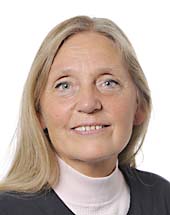
Choisissez la langue de votre document :
- bg - български
- es - español
- cs - čeština
- da - dansk
- de - Deutsch
- et - eesti keel
- el - ελληνικά
- en - English
- fr - français
- ga - Gaeilge
- hr - hrvatski
- it - italiano
- lv - latviešu valoda
- lt - lietuvių kalba
- hu - magyar
- mt - Malti
- nl - Nederlands
- pl - polski
- pt - português
- ro - română
- sk - slovenčina
- sl - slovenščina
- fi - suomi
- sv - svenska
|
| Förfarande : 2011/2308(INI) |
| Dokumentgång : | ||||||
Ingivna texter : A7-0283/2012 | Debatter : PV 20/11/2012 - 11CRE 20/11/2012 - 11 | Omröstningar : PV 21/11/2012 - 5.12Röstförklaringar Röstförklaringar Röstförklaringar | Antagna texter : P7_TA(2012)0443 | |||
| Fullständigt förhandlingsreferat | |
| Tisdagen den 20 november 2012 - Strasbourg | Reviderad upplaga |
|
| Rättsligt meddelande - Integritetspolicy |






















































































